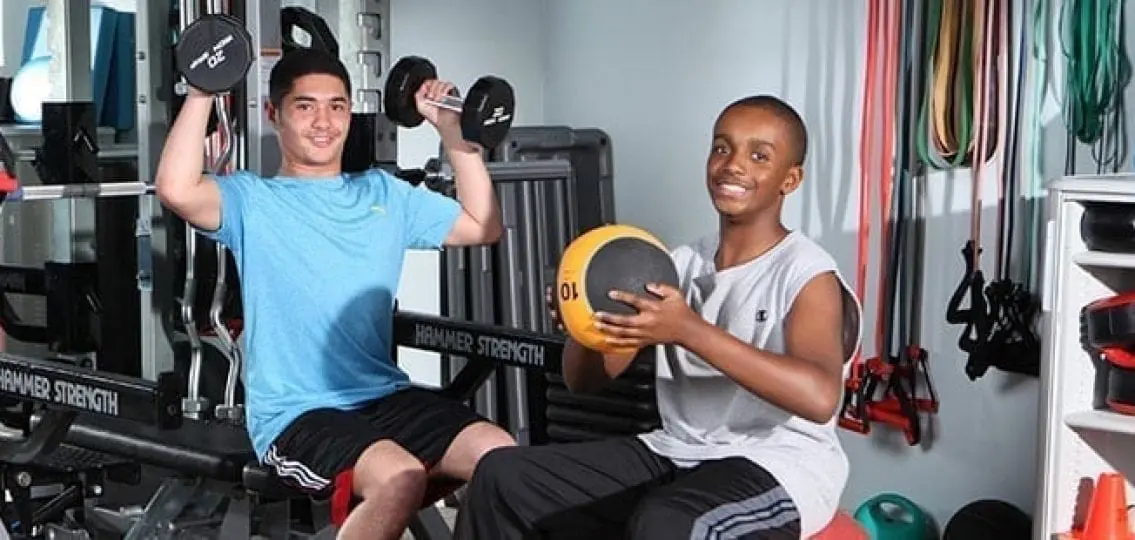Our teenagers are in the gym lifting weights but we’re worried about whether lifting weights is healthy for them. Your Teen asked Dr. Amanda Weiss Kelly, Chief of the Division of Pediatric Sports Medicine at UH Rainbow Babies & Children’s Hospital to answer questions about strength training for teens.

Q: Do you encourage weight training for teens?
Weiss Kelly: Experts in pediatrics and sports medicine generally agree that it is safe for children to participate in well-supervised strength training programs. The concern that strength training can lead to injury or stunted growth is no longer substantiated. It is critical, however, to understand the differences between strength or resistance training and power lifting. Power lifting is not recommended for young adults.
Q: What is the difference between power lifting and strength training?
Weiss Kelly: Power lifting is lifting a high weight once, like in the Olympics. Strength training involves lifting low weights with high repetition.
Q: What is the concern over power lifting?
Weiss Kelly: The primary concern is that power lifting can injure growth plates and lead to increased muscle pain and injury.
Q: What is the benefit of strength training?
Weiss Kelly: The goal of strength training is to make the athlete stronger and more competitive at a particular sport. The repetition leads to increased muscle endurance and strength, not just bulk.
Q: Does your advice differ for boys and girls?
Weiss Kelly: The only difference between strength training for boys and girls is that a girl will see less muscle definition than a boy.
Q: When should kids start lifting weights? Is there an earliest-age recommendation for strength training?
Weiss Kelly: There is no longer a concern about too young for strength training. That being said, I would recommend ages 13 – 14 for practical reasons, not safety concerns. The benefits are greater for young adults after they have reached puberty.
Q: How do you feel about legal supplements like Creatine?
Weiss Kelly: The American Academy of Pediatrics (AAP) and American College of Sports Medicine (ACSM) do not recommend supplements like Creatine. Supplements are expensive, have minimal strength benefits, and may not lead to better athletic performance.
Q: What is the best way to get started?
Weiss Kelly: The AAP and ACSM have developed guidelines. They recommend 2-3 times a week with at least one day of rest between sessions. A strength training program should involve all major muscle groups, making sure to train opposing muscle groups.
To get started, use an amount of weight that can be lifted for 3 sets of 10-15 repetitions. The last 3-4 repetitions should be difficult, but still performed with good form. When the last 3-4 repetitions become easy, increase the amount of weight by about 10%. Some children may need to start with no weight and just move the body against gravity. Always stress proper technique and work out all of the major muscle groups, including abdominals and the upper and lower back. These core muscles are important in all sports. Always perform a light warm-up before and cool-down after each session. To maintain flexibility, make stretching part of the routine.

Dr. Amanda Weiss Kelly is chief of the Division of Pediatric Sports Medicine, UH Rainbow Babies & Children’s Hospital.




